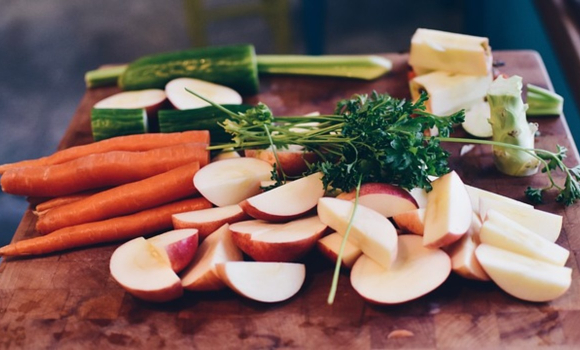Given that this month is ‘National Fresh Fruits and Vegetables Month’, it’s a great time to be a little bit more aware of what your elderly loved ones are including in their daily diets, and whether those things are conducive to good senior health. It’s also good to be aware of how fresh the foods in the refrigerator are, because it’s always possible that things aren’t being monitored closely for expiration dates and for freshness.
Then again, there may be times when, even if you are taking steps to make foods appealing and healthy for your senior loved one, they just aren’t interested in eating. AZ Health Care professionals recommend some of the following ideas for encouraging your senior to eat a little more, and if you can’t be around personally to do that, by all means consider retaining Phoenix health care specialists to help support the healthy eating initiatives at home.
Possible Responses
The first thing you should do is make sure that your senior’s disinterest in foods isn’t due to a medical condition, or a result of some medication they’re taking for a condition already present. Assuming that isn’t the cause, it’s worth a try to adjust the timing of served meals, adapting mealtimes to when your senior seems hungry, rather than at traditional times for breakfast, lunch, and dinner.

The way you serve meals may also have an impact. For instance, your senior may feel more confident about eating soup from a cup than a bowl, or he/she may prefer meats which have been cut up into small bites, as opposed to the cuts they were sold in.
Adding a little seasoning might increase the appeal of certain foods, and since seniors typically begin to lose taste as they age, a little extra might be just the ticket. Sometimes, seniors just aren’t interested in eating alone, and might feel more inclined if they had a partner to share with. Inquire about social meals and get-togethers at local community centers to make the experience more enjoyable.
When seniors develop increasingly low appetites, it’s better to provide them with heavy doses of nutrients rather than larger portions. Healthy calories from peanut butter and other foods might strike their fancy. And if the issue is that your loved one simply doesn’t enjoy cooking anymore, why not pitch right in, and share the preparation and cooking tasks with him/her? It will provide some good quality time to be with your loved one, and it may even overcome their disinterest in the whole cooking process.
One or more of these suggestions should do the trick, but if your senior loved one still shows little interest in eating after all your efforts, you might want to consider using an appetite stimulant to be sure they’re getting the nutrition needed.
Monitoring the diet of your senior loved one
It can be a difficult task to constantly monitor what your senior loved one is eating, especially if you have other commitments at home and on the job. But you don’t have to do all this alone – MD Home Health has been a trusted provider in the greater Phoenix area ever since 1985, and has helped many families through difficult times with health and home care. Contact us today to learn more.